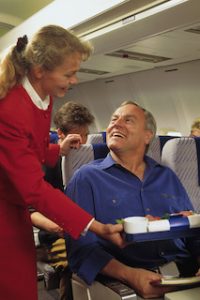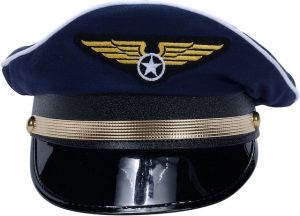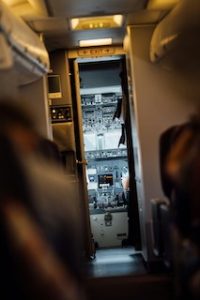Fast-Track Your Flying Career With Laminar Sim
 The journey to becoming a professional airline pilot is rigorous and multifaceted, encompassing a wide range of training programs and certifications. Among these, the Multi-Crew Cooperation, Airline Pilot Standards, and Jet Orientation Course stand out as critical components. These courses address essential competencies and operational skills required for success in the demanding environment of scheduled international airline operations. This article delves into the importance of these courses and explores why pilots must complete them to bridge competence gaps and thrive in their careers.
The journey to becoming a professional airline pilot is rigorous and multifaceted, encompassing a wide range of training programs and certifications. Among these, the Multi-Crew Cooperation, Airline Pilot Standards, and Jet Orientation Course stand out as critical components. These courses address essential competencies and operational skills required for success in the demanding environment of scheduled international airline operations. This article delves into the importance of these courses and explores why pilots must complete them to bridge competence gaps and thrive in their careers.
Addressing competence and operating gaps
- Identifying the gaps: Laminar Sim, a renowned specialist in aviation training, has identified significant competence and operating gaps among pilots without jet experience in a scheduled airline environment. These gaps are particularly evident in areas such as multi-crew cooperation, advanced aircraft handling, and adherence to standard operating procedures. Pilots transitioning from general aviation or smaller aircraft often struggle with the complexities and demands of flying advanced, swept-wing, multi-pilot transport jets. These challenges can impact their performance and safety, underscoring the need for specialised training.
- The role of MCC/APS/JOC courses: The MCC, APS, and JOC courses are specifically designed to address these gaps. They provide pilots with the necessary skills and knowledge to operate effectively as part of a flight crew on modern jet aircraft. These courses emphasize teamwork, communication, and adherence to SOPs, all of which are critical for safe and efficient flight operations. By completing these courses, pilots can ensure they meet the high standards required by international airlines and enhance their competence in key operational areas.
Enhancing multi-crew cooperation
- The importance of crew resource management: In the modern aviation environment, effective crew resource management is crucial. The MCC course focuses on developing CRM skills, which involve the use of all available resources—human, hardware, and information—to ensure safe and efficient flight operations. CRM training emphasizes communication, decision-making, leadership, and teamwork, enabling pilots to work seamlessly with other crew members.
- Building a cohesive flight deck team: Operating a multi-pilot aircraft requires a cohesive flight deck team. The MCC course helps pilots understand the dynamics of working in a multi-crew environment, including roles and responsibilities, division of tasks, and conflict resolution. These skills are essential for maintaining a harmonious and efficient cockpit environment, particularly during high-pressure situations.
Mastering advanced aircraft handling
- Understanding jet aerodynamics and performance: Transitioning from propeller-driven aircraft to jets involves a steep learning curve. Jets have different aerodynamic characteristics and performance profiles, particularly swept-wing jets commonly used in commercial aviation. The JOC course provides pilots with in-depth knowledge of jet aerodynamics, performance, and handling characteristics. This training ensures pilots can safely operate advanced aircraft and respond effectively to various flight scenarios.
- Handling advanced avionics and automation: Modern jets are equipped with sophisticated avionics and automation systems that enhance safety and efficiency but also require advanced handling skills. The JOC course trains pilots to manage these systems effectively, including flight management systems, autopilot, and other advanced avionics. Pilots learn to balance manual flying skills with automation management, ensuring they can handle any situation that arises during flight.
Adhering to Standard Operating Procedures
- The importance of SOPs: Standard Operating Procedures are the backbone of safe and efficient airline operations. They provide a structured approach to various flight phases, ensuring consistency and reducing the risk of errors. The APS course emphasises the importance of adhering to SOPs and trains pilots to follow these procedures meticulously.
- Implementing SOPs in real-world scenarios: The APS course includes realistic flight scenarios that allow pilots to practice implementing SOPs in real-time. This hands-on approach ensures pilots are familiar with the procedures and can execute them accurately during actual flight operations. By mastering SOPs, pilots contribute to the overall safety and reliability of airline operations.
Preparing for scheduled international airline operations
- Navigating complex airspace and regulations: Scheduled international airline operations involve navigating complex airspace and complying with various regulations. The MCC, APS, and JOC courses prepare pilots for these challenges by providing comprehensive training on international flight operations, air traffic control (ATC) procedures, and regulatory requirements. Pilots learn to operate effectively in diverse airspace environments and adhere to international aviation standards.
- Enhancing situational awareness: Situational awareness is critical for safe and efficient flight operations, particularly in the busy and dynamic environment of international airline operations. The MCC, APS, and JOC courses emphasize the development of situational awareness skills, enabling pilots to maintain a clear understanding of their surroundings, anticipate potential issues, and make informed decisions.
Tie-up with Kenya Airways
- Industry expertise and collaboration: Laminar Sim has tied up with Kenya Airways to create a comprehensive training course that focuses on the “hotspots” identified in pilot competence and operational performance. This collaboration combines industry expertise with practical insights from a leading international airline, ensuring the training program is relevant and effective.
- Tailored training for success: The joint training program developed by Laminar Sim is tailored to address the specific needs of pilots transitioning to advanced jet operations. It covers all critical areas, including multi-crew cooperation, advanced aircraft handling, adherence to SOPs, and preparation for international operations. By completing this course, pilots gain the skills and confidence needed to succeed and thrive in their flying careers.
Laminar Sim addresses the gaps
The MCC, APS, and JOC courses are essential components of pilot training, addressing critical competence and operating gaps that must be bridged for success in scheduled international airline operations. These courses enhance multi-crew cooperation, master advanced aircraft handling, and ensure adherence to SOPs, preparing pilots for the complexities and demands of modern aviation. Laminar Sim tie up with Kenya Airways exemplifies the importance of industry collaboration in creating effective training programs. By completing these courses, pilots can enhance their skills, meet the high standards required by international airlines, and thrive in their aviation careers.










